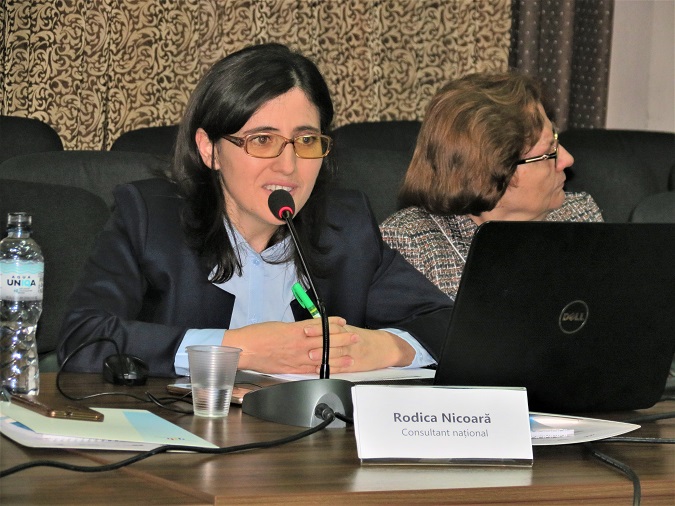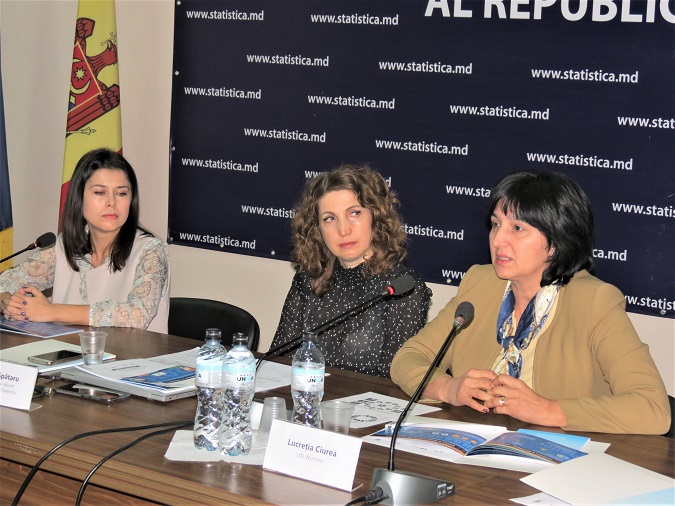Participation of Women and Men in the Information and Communication Technologies Sector Is Unfair
Women and girls occupy only 31% of jobs in the sector and only 19% of digital professions. Only 4.6% of the girls studying in higher education choose STEM (Science, Technologies, Engineering and Mathematics) as their study profile. As a result, women get jobs with a lower level of qualification in this sector and, respectively, of remuneration. Women’s salaries in the information and communication technologies sector (ICT) are by 33% lower compared to the salaries of men.Date:

The access to ICT and to the Internet is not equal. The share of households led by women who have a computer and Internet access is by 11.7 p.p. lower than of households led by men. Moreover, the differences grow with time: the access to computers and Internet of households led by men grows faster than of households led by women. These are some of the conclusions of the study “Women and Men in the Information and Communication Technologies Sector (ICT), presented today, 20 December 2019, by the National Bureau of Statistics.
The publication as well as the 2017 stocktaking of the national statistics, based on which the report was prepared, was produced as part of the UN Project “Strengthening the National Statistical System,” implemented by the National Bureau of Statistics, with the support of the United Nations Development Program (UNDP), United Nations Entity for Gender Equality and the Empowerment of Women (UN Women) and financed by Sweden.

The study "Women and Men in the ICT sector", was elaborated by the national consultant, Rodica Nicoara, who mentioned at the round table: "There were many challenges regarding the data disaggregated by gender in the ICT sector. We can say that this study is a premiere of the considerations that at the national level, the problem of the participation of women and men, until now, has not been investigated and analyzed in complexity. It has not been addressed in detail in national policies, although, at the international level, the long-standing issue concerns the decision-makers and numerous studies, analyzes and policies are being developed to improve the situation in the field”.
The report also finds that the share of those who have a computer is by 24.1 p.p. lower in villages than of those who live in urban areas. The access to ICT utilities is directly correlated with the level of wellbeing and education as well as with the presence and level of development of ICT infrastructure and services. About 71.5% of the richest households have computers, compared to 35.7% of the poorest ones. At the same time, approximately 90% of the households of persons with higher education and only 25% of the households led by persons with primary or no education have computers.
In the past three years, the number of ICT businesses led by women has been growing faster (by 28%) than those led by men (24%), while gender gaps have been declining. Women-led companies pay the highest salaries in ICT and the number of employments is higher in such companies. If this trend continues, the gender gaps among ICT businesses will decrease.
Women and men use ICT for different purposes, too. Men download operational programs more frequently, follow digital contents for recreation purposes or make payments for various services. Women more often get information about health services, trainings, education etc.

Lucreția Ciurea, specialist in monitoring and evaluation at UN Women, underlined: "The involvement of girls and women in the ICT field offers more opportunities for employment in decent work conditions and will contribute to reducing gender inequalities in this area and also diminish the existing wage discrepancies. Gender stereotypes in society regarding these professions still influence the decisions of girls to access ICT professions. The dynamics of the last years are positive and more and more girls and women have a greater interest in education and employment in the ICT field."
The study recommends removing the women–men inequalities concerning the access to ICT. The ICT inclusion would enable women to have broader access to education, health and social services, and would contribute to their economic independence and integration. The inequalities in accessing the ICT relate to the smaller women incomes, since on average in the economy they are paid lower salaries than men are. Promoting highly paid specialties and professions among women, including the masculinized ones, and eliminating the stereotypes present in the society about professions and occupations would contribute to enhancing women’s access to ICT and to eliminating the gap found in this area.